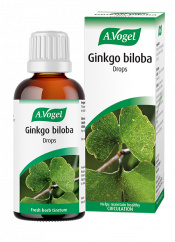The causes of tired legs in the morning
There can be a wide variety of causes of tired legs, and many of these depend on your lifestyle and your general health.
However, some common causes are:
- Poor sleep. As we sleep, our body is given time to rest and repair damage caused to cells and tissues during the day. If you don’t get enough sleep, or if you sleep poorly, you may find that your legs can’t recover from the regular wear and tear of the previous day
- Poor circulation. This can have a twofold effect: poor circulation during the day, which can be caused by sitting at a desk for too long, can give rise to tired, achy legs, which can continue into the night and the following morning; or poor circulation during the night can mean that your legs don’t get sufficient oxygen, blood and nutrients as you sleep
- Varicose veins. Varicose veins are damaged veins that struggle to pump blood efficiently away from the legs. This can lead to them becoming overworked, and can lead to pooling of blood and toxins which often leads to a tired, aching feeling in the leg
- Too much strain on the legs during the day. You may find that your legs are simply tired from being strained or under pressure the previous day. Consider whether you have been exercising more, standing up for too long or walking more than usual
- Insufficient oxygen reaching the legs. This can be caused by breathing problems such as sleep apnoea, as well as allergies, sinus problems and upper respiratory infections. It could also be caused by a lack of iron, which is vital for transporting oxygen around the body
- Nutrient deficiencies. As well as iron, there are a number of other nutrient deficiencies that can cause muscle ache. Magnesium and calcium are both vital for muscle function, and while Vitamin D is often associated with bone health, it is also important for muscles.
- Fibromyalgia. This condition commonly causes muscle ache, pain throughout the body, fatigue, difficulty concentrating and difficulty sleeping. Read more about it here.
What you can do
There are a number of simple measures you can take to help reduce tired legs when waking up in the morning. Since the causes can be varied and often difficult to determine, it may be worth trying a few methods to find one that works for you:
- Try to boost circulation before going to sleep. This is important for both sedentary and active lifestyles. If you lead a sedentary lifestyle, it will help boost blood flow if your circulation has been sluggish all day, and if you lead an active lifestyle it will help relax and soothe tired or overworked muscles. Try massaging the legs to encourage blood flow, do some yoga to get blood pumping all around the body, do some simple stretches, or do some gentle exercises like squats or simply jogging on the spot
 Applying Venagel before going to bed can
Applying Venagel before going to bed can
also cool and soothe tired legs, and rubbing the gel in an upward motion will encourage blood flow. You can also apply this in the morning to ease tired, achy legs- Get some gentle exercise in the evening. This is particularly important for those with a sedentary lifestyle to relieve the ache and stiffness that can accompany long periods of inactivity. A brisk walk or a gentle jog are great places to start
- For people with a very active lifestyle, try to move strenuous exercise to the morning and opt for more gentle exercise in the evening
- Elevate feet during the night to help blood flow more easily through the legs. The easiest way to do this is to place a pillow under your feet while you sleep
- Improve your diet generally to boost your intake of a broad spectrum of vitamins and minerals. Good things to focus on are green, leafy vegetables (such as broccoli, kale, and spinach), seeds, nuts and a variety of fruits. The key is to try to incorporate a variety of foods in your diet to ensure you consume a wide range of nutrients. You could also consider taking a good quality multivitamin supplement – but this should not be used in place of a healthy, varied diet
- Eat more circulation-boosting foods such as ginger and fish, and avoid inflammatory foods such as refined sugar, caffeine and alcohol.









